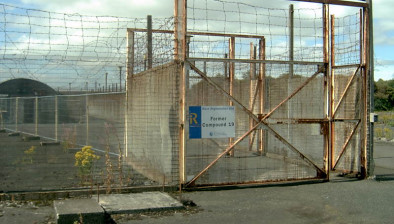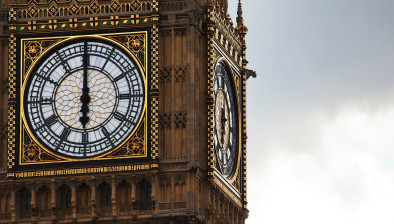UK: Supreme Court: Pearse Jordan’s mother wins appeal against stay in damages case
Pearse Jordan’s mother has successfully appealed the decision of the Court of Appeal to order a stay on her application for damages for the state’s failure to carry out a prompt investigation into the circumstances of her son’s death, in violation of Article 2 ECHR.

About this case:
- Citation:[2019] UKSC 9
- Judgment:
- Court:UK Supreme Court
- Judge:Lord Reed
Finding that there was no evident consideration of proportionality in ordering the stay, the UK Supreme Court unanimously allowed Mrs Jordan’s appeal.
Background
On 25 November 1992, Pearse Jordan was shot and killed in Belfast by a member of the RUC. Pearse was unarmed and was shot in the back as he ran from the car he was driving.
Pearse’s father, Hugh Jordan, made an application to the European Court of Human Rights (ECtHR) in 1994, complaining that the failure to carry out a prompt and effective investigation into Pearse’s death was in violation of Article 2 of the European Convention on Human Rights. Article 2 of the ECHR requires that where a person dies at the hands of police or the armed forces, there must be a prompt investigation into the circumstances of the death.
In 1995, an inquest commenced but was adjourned shortly afterwards and was never completed.
In 2001, the ECtHR upheld Hugh Jordan’s complaint and awarded him £10,000 in damages (Jordan v United Kingdom (2003) 37 EHRR 2).
In 2012, a fresh inquest into Pearse’s death commenced and a verdict delivered – however this was later quashed when Hugh Jordan challenged the conduct of the inquest.
Claim for damages and further inquest
In 2013, Hugh Jordan commenced the present proceedings, seeking declarations that the Coroner and the PSNI were responsible for delay in commencing the inquest in violation of Article 2. He also sought damages pursuant to section 8 of the Human Rights Act 1998 in respect of the delay from 2001 to 2012.
In the High Court in Belfast, Mr Justice Ben Stephens upheld the claim against the PSNI, finding that there had been a series of failures to disclose relevant information until compelled to do so, and also a delay in commencing a process of risk assessment relating to the anonymity of witnesses. Mr Justice Stephens made a declaration that the PSNI “delayed progress of the Pearse Jordan inquest in breach of article 2 of the European Convention on Human Rights and contrary to section 6 of the Human Rights Act 1998”, and awarded damages of £7,500.
The PSNI complained that they should not have orders made against them where other state parties were responsible for the delay but were not party to the proceedings. Thereafter, the Department of Justice was joined as a respondent to the proceedings.
In 2015, the Court of Appeal held that in cases which concerned deaths in Northern Ireland during the Troubles, the issue of damages for breach of the obligation to investigate the circumstances of the death ought to be dealt with after the inquest had finally been determined.
The Court of Appeal said that a claim for damages for breach of a requirement that an inquest be conducted promptly should not be brought until the inquest had finally been determined. The ultimate outcome of that appeal was an order that the proceedings should be stayed until after the inquest had been completed.
In 2016, a further inquest commenced and, sitting as Coroner, Mr Justice Horner said it was impossible with the passage of time to say with any certainty what happened. Mr Justice Horner criticised the PSNI for creating obstacles and difficulties that prevented progress in the inquest, and ultimately found that neither side were able to convince him of what they said had occurred immediately prior to the deceased’s death. Pearse’s mother, Teresa Jordan, was unsuccessful in bringing judicial review proceedings to challenge the verdict of the Coroner.
Supreme Court
Due to Hugh Jordan’s deteriorating health, Teresa Jordan took over the conduct of the present proceedings.
Delivering the judgment of the five-judge Court, Lord Robert Reed said that the Supreme Court would unanimously allow the appeal.
Lord Reed explained that the Human Rights Act 1998 confers a statutory right on any person to bring proceedings against a public authority that acted in a way which was incompatible with their convention rights – and that no court can take statutory right away.
A court can exercise powers of case management, including ordering a stay, but Lord Reed said that when doing so, a court must bear in mind important aspects of convention rights:
- Convention rights must be practical and effective;
- A stay will be unlawful if it results in a breach of a guarantee in Article 6 ECHR that legal cases must be determined within a reasonable time;
- A stay is an interference with another right guaranteed by Article 6 ECHR – of access to a court – therefore it must pursue a legitimate aim and it must be proportionate. Lord Reed said that this required a consideration of the proportionality of the stay in the circumstances of a particular case.
Lord Reed explained that there may be factors in individual cases which make the expeditious determination of a claim particularly important, and he said that the present case illustrated the importance of avoiding delay in proceedings brought by claimants who are elderly or infirm.
The guidance given by the Court of Appeal involved no assessment of proportionality or consideration of individual circumstances. Lord Reed said it was also liable to render the Article 2 procedural right ineffective.
After Jordan, the Court of Appeal dealt with In re McCord’s application for Judicial Review, unreported, 18 January 2019. The Court clarified what it meant in Jordan’s case, in that it intended the guidance that it gave here to be confined to cases where damages were the only outstanding issue and where an inquest can be expected to begin in the near future if not already underway. Lord Reed said it appeared that the Court of Appeal intended that the appropriateness of the stay should be kept under review and should be lifted if a claim for damages would otherwise not be determined within a reasonable time.
Lord Reed said that the clarification in McCord met most of the points raised in this appeal, and that it was only necessary to add that it’s also essential to consider whether that general guidance should be applied in the particular circumstances of any individual case.
In the present case, Lord Reed said that the stay was imposed without any evident consideration of proportionality. He said it was uncertain whether it would have been imposed if proportionality had been considered in the light of all the relevant facts – including Hugh Jordan’s declining health.
- by Seosamh Gráinséir for Irish Legal News










